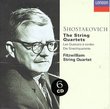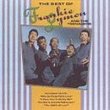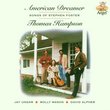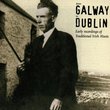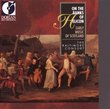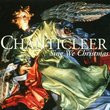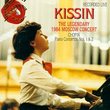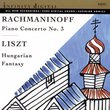| All Artists: John Eliot Gardiner, Nancy Argenta, Olaf Bär, Hans Peter Blochwitz, Alison Bury, Lisa Beznosiuk, Valerie Darke, Valerie Botwright Title: Bach - Christmas Oratorio / Gardiner Members Wishing: 0 Total Copies: 0 Label: Archiv Produktion Release Date: 10/25/1990 Genres: Special Interest, Classical Styles: Holiday & Wedding, Opera & Classical Vocal, Historical Periods, Baroque (c.1600-1750) Number of Discs: 2 SwapaCD Credits: 2 UPCs: 028942323223, 0028942323223 |
Search - John Eliot Gardiner, Nancy Argenta, Olaf Bär :: Bach - Christmas Oratorio / Gardiner
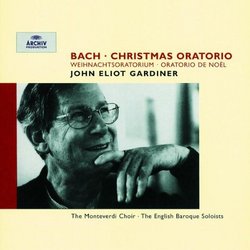 | John Eliot Gardiner, Nancy Argenta, Olaf Bär Bach - Christmas Oratorio / Gardiner Genres: Special Interest, Classical
This isn't an oratorio in the Handelian sense, but a series of cantatas for various days from Christmas to Epiphany. Bach's music is loaded with treats: an echo aria for soprano and oboe; a "pastoral" sinfonia; bravura ... more » |
Larger Image |
CD DetailsSynopsis
Amazon.com essential recording This isn't an oratorio in the Handelian sense, but a series of cantatas for various days from Christmas to Epiphany. Bach's music is loaded with treats: an echo aria for soprano and oboe; a "pastoral" sinfonia; bravura arias for tenor with flute and bass with trumpet; a giddy soprano-bass duet; a transporting lullaby for alto. Then there are the choruses, featuring the Monteverdi Choir at their best: exuberant full-orchestra choruses in parts one and three; a lilting triple-time chorus with horns in part four; the joyful skittering chorus in part five; and the triumphant opening and closing of part six (with spectacular trumpet solos). John Eliot Gardiner's direction is vigorous; the soloists, the best group you'll find on CD, include a terrific young Anne Sofie von Otter. --Matthew Westphal Similar CDsSimilarly Requested CDs
|
CD ReviewsGardiner does it again with a fine "Christmas Oratorio" 12/11/1999 (5 out of 5 stars) "This worthy performance of Bach's "Christmas Oratorio," recorded in 1987, further enhances John Eliot Gardiner's substantial discography of performances of Baroque, Classical, and Romantic masterworks. Very rarely does Gardiner turn in a lackluster performance, and this reading of the six-part Bach work sparkles. I cannot reconcile the criticism I read from another reviewer--that Gardiner turns the opening chorus of Part 1 into a "military march"--with what I hear on the recording; perhaps this reviewer was unaware that the chorus derives from the cantata "Toenet, ihr Pauken!", BWV 214 (where its opening words are "Sound, drums! Ring out, trumpets!"), so that any "military" quality he hears is what Bach wrote into the music. The soloists are uniformly good, especially mezzo-soprano Anne Sofie von Otter and bass Olaf Bar, and the disk timings (73:01, 67:03) show that the buyer certainly gets his or her money's worth of music. As far as the music itself, although, as indicated above, Bach did a fair amount of recycling (from BWV 213, 214, 215, and from the lost "St. Mark Passion" BWV 247 and a presumed lost cantata BWV 248a), the reused music is of the highest quality, and in certain cases Bach even seems to have had second thoughts and decided to write new movements for the "Oratorio" rather than add new texts to old movements. The result, of course, is up to Sebastian's usual magnificently-high standard.If you are considering buying a recording of Bach's oratorio, I don't see how you can go wrong with Gardiner's rendition. Highly recommended." Gardiner does it again 01/07/2000 (5 out of 5 stars) "By far the best performance on record, outstanding on all fronts (solo, choral, instrumental). To me, the old warhorse compared in the two-star review below doesn't even come close. It indicates that the reviewer is a traditionalist with a very fixed view, not at all in keeping with modern knowledge of period performance. These works weren't played in the overly reverent 19th century inflated grandiose manner (a manner from which Handel's "Messaih" has been finally rescued), but in a lively fashion. Gardiner might indeed push at the limits a bit (given the technical ability of the Monteverdi Choir in particular, who can blame him?), but in this version, to me he gets it dead right - a nicely-balanced performance which brings back the joy and exhilaration in a great piece of music." You can lead a warhorse to water... 03/18/2001 (5 out of 5 stars) "...but you can't make it think? No, that's unkind and unmerited. Mr.Nielsen the warhorse man (neigh sayer?) clearly likes his Bach old-fashioned and warhorseish and that is his right. I have had the privilege of hearing Richter do this "live" with an equally stellar cast in the Kongressaal, Munich too many years ago. It was good, but more than ever I'm convinced that this is yesterday's Bach. I agree, Wunderlich et al have great voices - for opera. Bach did not have such voices, and his music is best served by lighter vibrato-free voices rather than ponderous bel canto styles. And I'm sorry, I cannot agree that the excellent young singers in the Gardiner version lack feeling in what they sing. And why shouldn't Bach be impressive? The city fathers at Leipzig would have wanted that. So, although there are other excellent performances (e.g., Pickett and Herreweghe - and I commend to Mr. Nielsen Eugen Jochum's verion as the best of the "Warhorse" versions), Gardiner still comes out tops."
|

 Track Listings (36) - Disc #1
Track Listings (36) - Disc #1

